Quantum computing harnesses the unique properties of quantum mechanics, such as superposition and entanglement, to perform computations that are beyond the capabilities of traditional computers. While traditional computing uses bits as the unit of information, quantum computers use qubits. Although quantum computing is still in its early stages, recent advancements have made it more practical, and its potential impact on various fields, such as cryptography, chemistry, and cosmology, is significant.
Table of Contents
Definition of quantum computing:
Quantum computing refers to the use of quantum mechanical phenomena like superposition, entanglement etc, to perform computing. Traditional computing works with bits. That is all information is processed and exchanged in 1, 0 /true-false signal which comprises a bit. That is bit is the unit of information in traditional computing. In quantum computer qubits are used instead.
Quantum computing is a computer science method which uses the properties of quantum physics to solve problems that would be too complex for today’s computers. The first application of quantum computing was in cryptography, but it has since been applied to other fields, including chemistry and materials science.
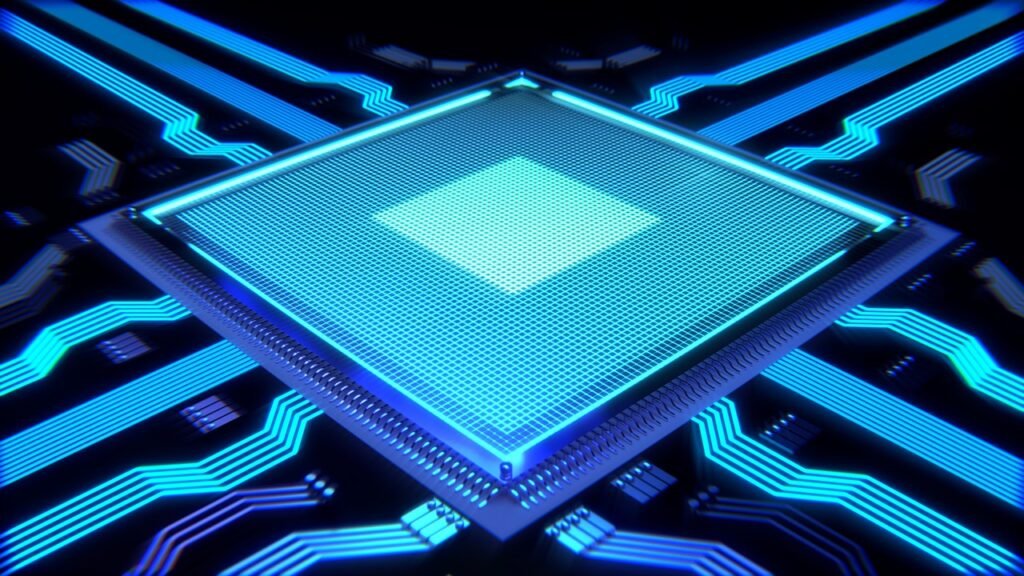
Quantum computing is still in its infancy and there are many challenges ahead, including the ability to build large-scale quantum computers with sufficient processing power. However, recent advances have made quantum computing much more practical than earlier methods; for example, some companies have already started selling commercial products based on this technology.
Scope of quantum computing:
As of today a limited success is made in the direction of quantum computing and very small number of qubits has been designed so far. But its application will revolutionise the field of computing. D-wave the pioneer in quantum computing is working with the Google to manufacture qubits. The latest news is that they have sold a quantum computer with more than 1000 qubits called 2X quantum computer to the US military or the NSA. Google will be making a pioneering statement on quantum computing on December, 8 this year. So keep waiting for that.
The most grand scope for quantum computer is cosmology, believe it or not for our universe is itself a quantum supercomputer, refer to the paper by Prof. S. Lloyd [1312.4455] The universe as quantum computer. So, advancement in the future can let us program the universe itself. For example, in 2020 entropy reversal using the quantum computing was possible, reversing entropy is reversal of time. Similarly, existence of time crystals was predicted using quantum computing in 2021.
Technological perspective for quantum computing:
The traditional computing technology follows the Moore’s law that states that the number of transistors in a microprocessor doubles approximately in every two years. This means the industry needs to dive into smaller and smaller fabrication methods. Currently, the Intel has already shipped its Skylake architecture based upon 14 nm process and is working on 10 nm process. But this process will soon end when it will hit the 1 nm process because from there on quantum tunnelling effect will start to dominate.
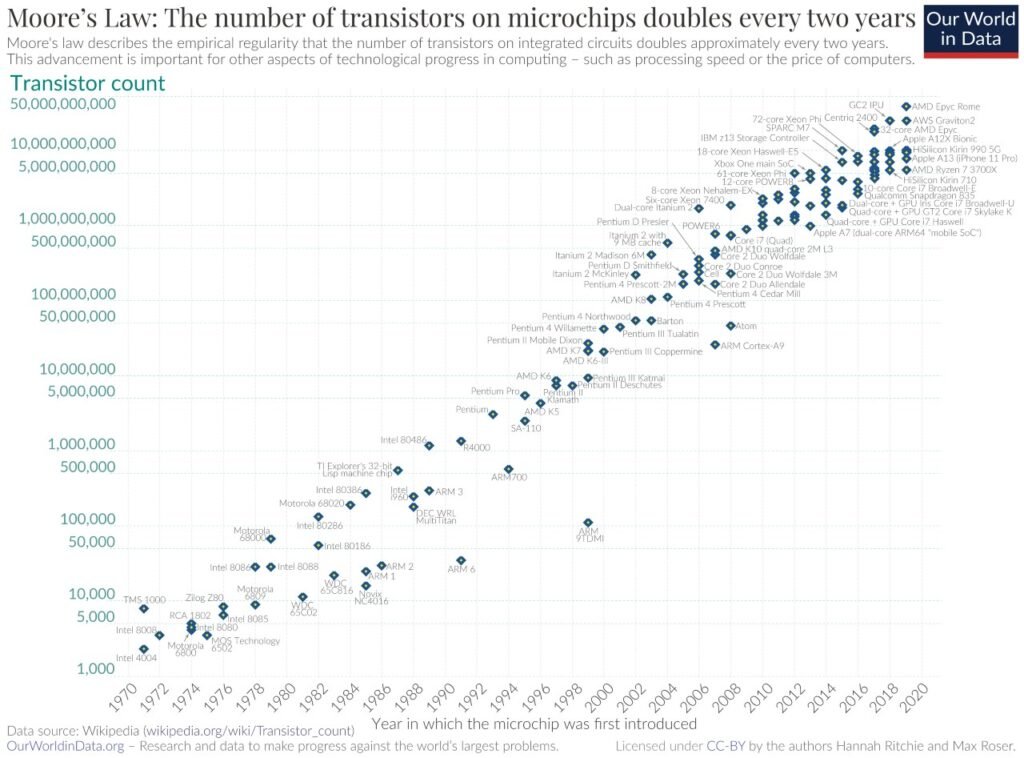
Whereas the quantum computing will follow the analogous Rose’s law that states that the number of qubits have doubled every year with twice the speed that of the Moore’s law.
So far see the trend by D-Wave in qubit development.
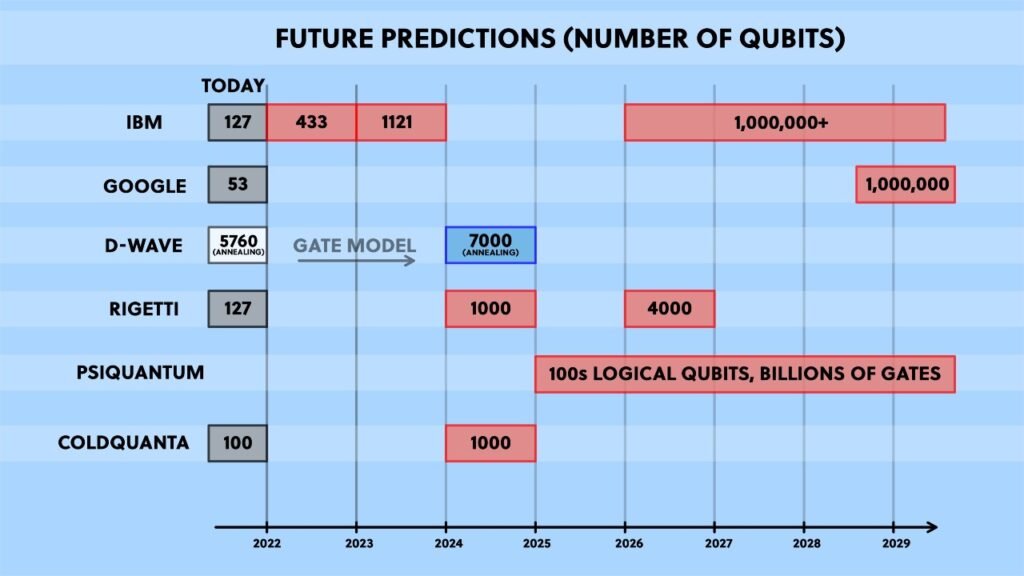
Future of quantum computing:
Quantum computing has a great potential for future. You perhaps noticed that present day information processing and storage needs increment of the bits registers more and more (eg. 32 bits, 64 bits) also information storages (10TB etc ) quantum computing will allow very large amount of information storage with a very small number of qubits. Qubit will help in solving very complex computation problems like turbulence, many body problems etc. Quantum computing will destroy any “secure” present day encryptions like RSA easily by its ability to determine very large prime numbers in short time (Shor’s algorithm is one example). Following is the hypothetical pathway for the future of quantum computing comprising the Rose’s law.
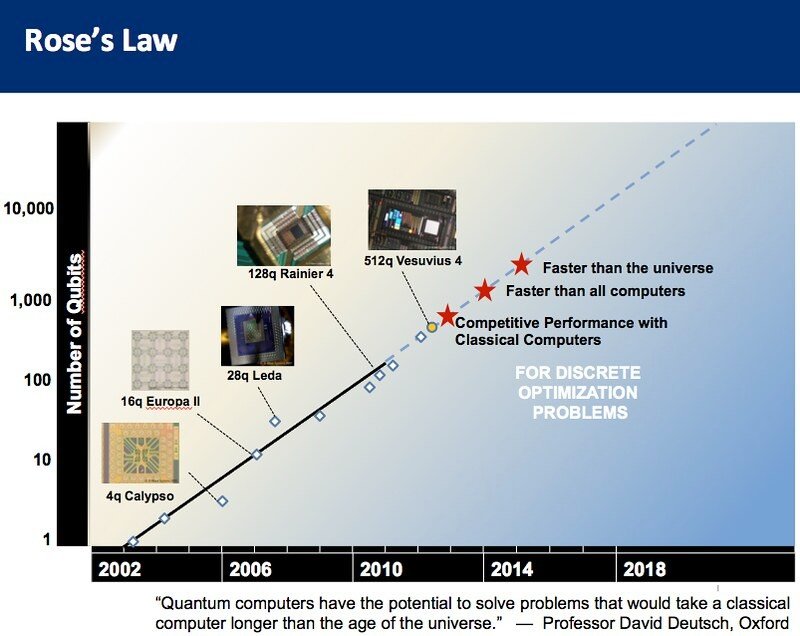
So, we can assume faster than universe computing by 2017 by the use of quantum computer.
Will quantum computing be a booming industry in 10 years?
Here is how much was spent on quantum computing worldwide in 2021:
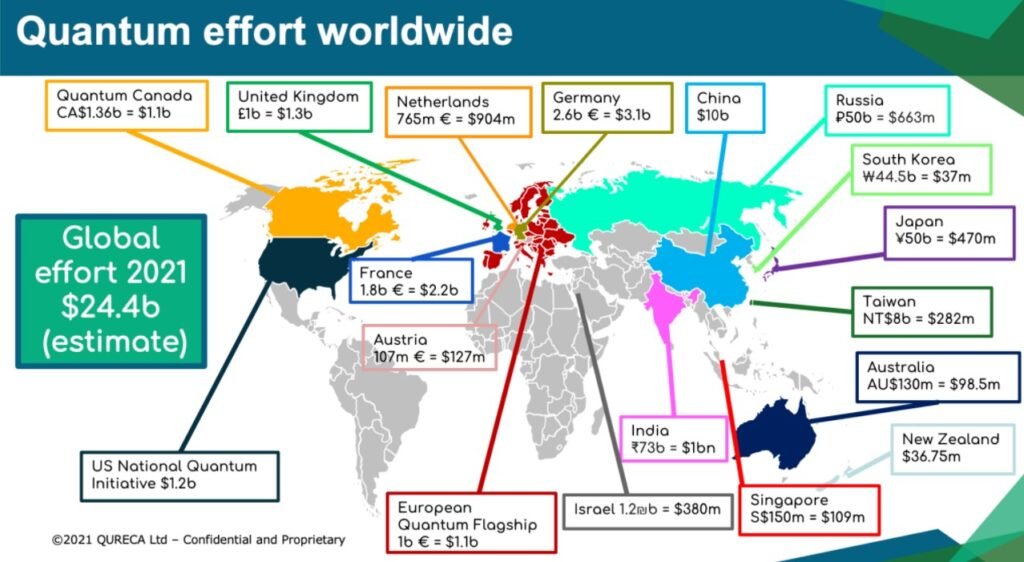
Average consumer probably won’t have a need to interact with a quantum computer – but they sure will rip the benefits of products made possible with quantum computing:
| Industry | Potential Benefits of Quantum Computing |
|---|---|
| Pharma | – New mechanisms of drug design leading to cheaper medicine – Finding cures for currently incurable diseases |
| Material design | – Cheaper cars, airplanes, houses, and other man-made products – Enhanced material design for improved performance and cost-efficiency |
| Economy | – More optimal financial markets – Better liquidity for companies in need of capital |
| Other industries | – Improved battery design – Enhanced fertilizers for agriculture – Better weather forecasting and other potential advancements in various fields |
Conclusion
The future of quantum computing holds great promise. With the ability to store and process vast amounts of information using a small number of qubits, quantum computing could revolutionize industries such as pharmaceuticals, materials design, and finance. It could also have far-reaching implications for fields like agriculture, weather forecasting, and energy storage. While challenges remain, the rapid progress in quantum computing suggests that it could be a booming industry in the next decade, with wide-ranging benefits for society.








talking to lawmakers and regulators. His influence may wane, given his company’s sudden decline, and legislative issues like the Digital
These laws are an important step towards creating a culture of consent and respect in all interactions.